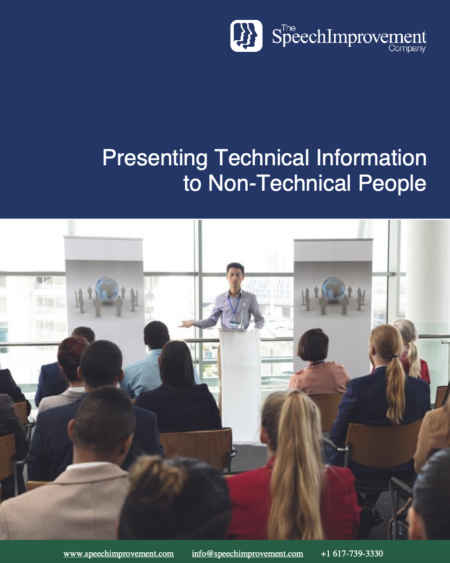Questions are an essential part of meetings. When questions are asked, there is interest; that’s a good thing. Questions can be a test not only for your knowledge of the content but your confidence in what you are representing.
The 3 techniques below will help you prepare for inevitable questions.
1) Restate– In restating the question you are NOT adding any new information or changing the meaning. This is really important. Changing the meaning does not always mean words, many times it’s done with tone and inflection. Also restating DOES NOT mean using the same words and ‘parroting’ the information. When this technique is done well the listener repeats the essence of the message with no judgment, emotion or opinion implied, in other words – a neutral tone. It’s much easier said than done. It can be most challenging in an emotionally loaded conversation which is also where it is the most powerful and effective. The main resistance people have to restating comes from the fear that they may be seen as agreeing when they do not. Do not let this stop you from using this effective technique, as it is even more powerful when you do not agree with the other person’s statement.
2) Disclaiming– Many times people are fearful to give an answer because they want to have the right answer. “I don’t know, but I will find out” won’t really get you very far in business communication especially when it’s used more than once. Learning how to frame your answer can help. There are phrases which act as a disclaimer so you can offer insight or at least the limited information you do have.
Here are some examples:
Providing the economy doesn’t worsen, we can pay the accounts on time
I’m not an expert on unsecured securities however it seems to me that….
I am not privy to all of the data, however based on what I do have….
3) Prepare for worst–Most of us do know what the most difficult question we could be asked is relevant to our presentation. Sometimes it’s based on knowing a weakness in the data/product or just the personality of that listener. Think about the mindset of your listener…what’s most important to them? What motivates them? Next think about your presentation. Are there obvious targets for questions? Prepare and practice your response to those questions. If the question is inevitable, its answer should be incorporated into the presentation from the beginning.
The best way to learn the techniques above is through practice. Ideally practicing with someone who can ask you questions that are unexpected so you can learn to use the techniques while under pressure and still exude confidence. If you can hire an experienced speech coach to learn these techniques, you will be answering questions confidently in no time.





